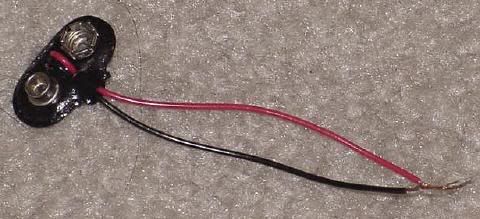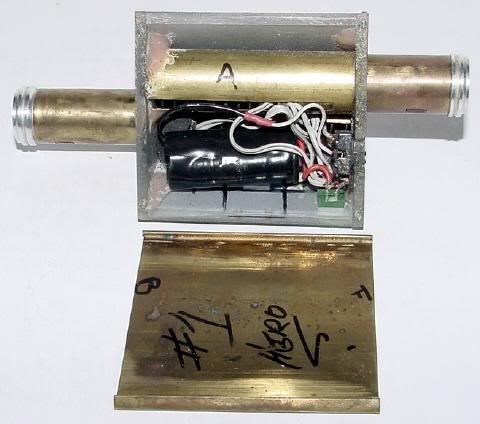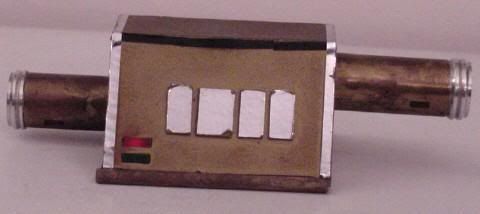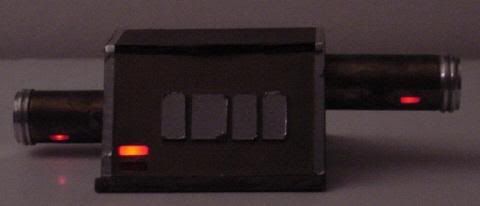I have purchased several props from both Christie’s and IAW that were described as “untested” (which in normal speak means, “not working”) I thought I’d share with everyone the steps I took on the non-working props to get them working, in hopes of helping others do the same. The suggestions below may seem obvious to some but may be helpful to others like myself who are not electronics experts.
I’ll do this in segments talking about the particular prop I fixed and what I did to fix it.
SEGMENT #1: DEEP SPACE NINE STEM BOLT
The first “untested” prop I won that arrived in non-working condition was the stem bolt from Christie’s. Since, according to the battery holder inside the piece, it took an “N” type battery (easily available at Lowe’s) I figured that once the battery was put in it would not work, because it would have been easy for the Christie’s people to test the prop with an “N” type battery themselves. Sure enough, it didn’t work.
I spent some time tracing the wiring (the wiring actually loops around some of the internal pieces of the prop, so it‘s hard to trace) and I also took sandpaper to the contacts inside the battery holder to make sure that the battery was making contact, but to no avail. There were no breaks in the wiring and the contacts were fine. If you have a non-working prop by the way, this would be my first recommended course of action, checking the wiring and contacts, as I did get one piece working by just taking sandpaper to the contacts.
After having no success with the wiring and contacts, I thought that maybe the lights were bad; then the thought occurred to me, “what if it takes more power than the 1.5 volts that the N battery puts out? Even though the battery case says right on it that the piece takes an N battery, what if it needs more power?”. So I took a 9 volt battery and hooked it to a cap that I had purchased at radio shack with two loose wire ends and held each of the corresponding positive and negative ends of the wires to the positive and negative ends of the battery holder. Flipped the switch on and “eureka” I had lights!!
Now the problem was, how do I fit a 9 volt battery into this small space? Then it dawned on me, I had also purchased a Tricorder scanner from IAW. The scanner was working. When I opened the scanner I saw that it was powered by six watch batteries that had been taped together, end to end, and there was my answer…….…..six 1.5 volt batteries together would equal 9 volts of power!
So I placed six 1.5 volt watch batteries end to end (with the positive end of the watch battery facing the positive end of the N type battery holder) inside the N type battery holder in the prop (they fit perfectly in the space by the way) and I now have a working prop. So that’s how they get 9 volts of power into small spaces when a 9 volt battery won‘t fit.

This is a picture of the 9 volt “cap” that I used to test my prop

This is a picture of the inside of the stem bolt with the watch batteries in place (note that I wrapped electrical tape around the "N" type battery holder to keep the batteries in the holder).

This is a picture of the working stem bolt (taken with the flash)

….and without the flash

Nog holding a stem bolt; interestingly enough, he holds the bolt with the flashing lights facing him, so the audience does not get to see the actual, flashing lights of the prop!
Doug Shannon
0 comments:
Post a Comment